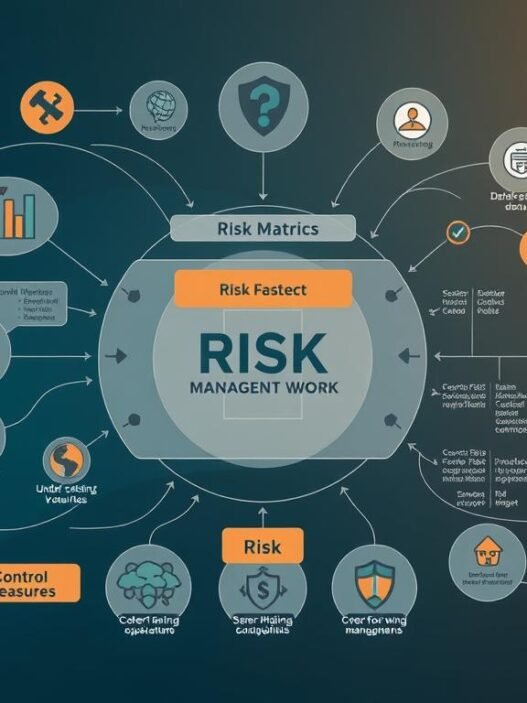Did you know that using CRM and marketing automation together can really boost customer gain and keep? This often leads to bigger business growth1. In today’s fast world, marketing automation tools are key for companies wanting to do better in marketing. They help save time by automating tasks, letting teams focus on growth plans2.
The best automation software lets businesses give customers what they want. This makes 65% of customers loyal to companies that get them3. So, using marketing tools well helps companies stand out and get ahead in their field.
Key Takeaways
- Integration of CRM and marketing automation enhances marketing effectiveness.
- Automated tools streamline tasks and save significant time for marketers.
- Personalized experiences foster customer loyalty and retention.
- Choosing the right marketing automation tools is crucial for business success.
- Automation helps optimize marketing spend and improves ROI.
- Effective tools can lead to measurable growth metrics.
The Importance of Marketing Automation for Business Growth
Marketing automation is key for businesses looking to grow. It makes marketing more efficient and lets teams focus on big ideas, not small tasks. This leads to better productivity and more customer engagement.
Understanding the role of automation in contemporary marketing
Marketing automation is crucial in today’s fast-paced market. It helps streamline tasks like email campaigns and social media. This can boost sales by 14.5% and cut marketing costs by 12.2%4.
Also, 50% of leads need extra care before buying, showing the need for automated lead management4. Big names like Sephora use it to make content more personal and boost website visits5.
How marketing automation can create a competitive advantage
Marketing automation gives businesses a big edge. It can lead to a 451% jump in qualified leads and 47% bigger purchases4. It helps understand customer behavior, making marketing more effective5.
It’s easy to collect and analyze lots of data with automation, improving lead quality and sales4. Customizing messages based on customer data also leads to better marketing results5.
What is Marketing Automation?
Marketing automation is a set of software tools that automate marketing tasks. It helps manage campaigns, nurture leads, and improve customer interactions. These tools save businesses a lot of time and effort.
Definition and core functionalities
Marketing automation has many features to boost marketing efficiency. It includes automated workflows, audience segmentation, data analytics, and reporting. These tools reduce errors in marketing campaigns, boosting revenue and efficiency6.
They also have easy-to-use interfaces and analytics. This helps teams work better and improve campaign results7.
The evolution of marketing automation tools
Automation tools have evolved from simple email marketing to advanced systems. Now, they handle many digital marketing tasks, like lead scoring and personalized messages. These tools help businesses plan better without manual work6.
As businesses grow, these tools adapt and improve team work7. They make it easier to send personalized messages, keeping customers engaged.
| Feature | Importance |
|---|---|
| Automated Workflows | Streamline repetitive tasks, improving efficiency |
| Audience Segmentation | Personalizes marketing efforts for targeted campaigns |
| Data Analytics | Provides insights for data-driven decisions and strategy optimization |
| Reporting Functionalities | Tracks performance metrics for continuous improvement |
| Integration with CRM | Enhances lead management and customer relationship strategies |
The change in marketing automation tools shows a move towards more personalized and efficient marketing. This is key for businesses today67.
Key Features of Effective Marketing Automation Tools
In the world of marketing automation, certain features help businesses improve their workflows. Knowing these key features helps companies pick the right tools for their goals.
Automated workflows and task management
Automated workflows help businesses manage routine tasks better. This is key for small businesses to work more efficiently without needing more staff. Studies show that well-organized workflows in automation tools are crucial for better productivity and handling today’s marketing needs8.
Automated responses can also lead to more customers buying from you. This is a big help for sales teams9.
Integrating with CRM systems
Being able to integrate with CRM systems is very important. It lets businesses have more personal interactions with customers by tracking their data. This helps spot the most promising leads and tailor messages to them.
About half of marketing automation tools focus on B2B needs. This shows how crucial CRM integration is for building strong customer relationships and navigating sales cycles9. It also makes lead management smoother and helps sales and marketing teams work better together10.
Analytics and reporting capabilities
Good analytics and reporting are at the heart of marketing automation. These tools give insights into how customers behave, how campaigns do, and the return on investment. By using analytics, businesses can test different approaches and see what works best.
Email campaigns are a big part of customer communication, making up about 70% of interactions. This shows how important it is to track them well8. With effective analytics, companies can keep improving their marketing efforts to get better results10.
8 Key Benefits of Marketing Automation
Marketing automation brings many benefits to businesses. It makes processes more efficient and helps in nurturing leads. Let’s dive into the main advantages of using marketing automation.
Improved operational efficiency
Marketing automation tools make repetitive tasks easier. This lets marketing teams focus on big ideas. Automation can cut down time on tasks by up to 80%, saving 12.2% in marketing costs11.
It’s like having one employee do the work of 25. This shows big savings in staff costs12.
Enhanced lead management
Marketing automation makes managing leads better. Companies using AI tools see better conversion rates and shorter sales times11. Testing campaigns is easier, giving real-time feedback for better results12.
Increased personalization in marketing messages
Personalized marketing is key for better customer relations. Automation helps businesses see a 30% increase in email opens and a 25% rise in clicks11. This leads to messages that really connect with customers, boosting engagement12.
Better campaign performance measurement
Marketing automation makes it easier to see how campaigns are doing. It puts all the important metrics in one place. This makes it simple to understand data and make better decisions for more ROI13.

| Benefit | Description |
|---|---|
| Operational Efficiency | Reduces time spent on tasks by up to 80% and cuts marketing overhead costs by an average of 12.2%. |
| Lead Management | Enhances conversion rates and reduces sales cycle times through effective nurturing. |
| Personalization | Boosts email engagement metrics significantly, improving open and click-through rates. |
| Performance Measurement | Simplifies reporting processes to offer consolidated insights into campaign effectiveness. |
To learn more about the benefits of marketing automation, check out different tools and strategies. They help with effective marketing in today’s fast-paced world13.
How Marketing Automation Tools Enhance Customer Experience
Marketing automation tools are key to better customer experience. They help with clear communication and tailored interactions. They make sure messages are consistent across all channels and meet each customer’s needs.
Delivering consistent messaging across channels
Businesses can keep their messaging consistent with these tools. They use data to create messages that work well on email, social media, and websites. This builds trust and strengthens the brand.
In fact, 77% of marketing leaders say automation improves customer experience14. This approach boosts loyalty and satisfaction, making it vital for today’s marketing.
Improved customer engagement through personalization
Today, 92% of customers expect personalized interactions14. Marketing automation makes this possible with dynamic content and segmentation. It sends personalized emails and manages chats, ensuring quick responses.
These tools also analyze feedback and preferences, enhancing the customer experience. This leads to better conversion rates, loyalty, and advocacy, crucial for success15.
Integrating Marketing Automation with ERP Systems
Linking marketing automation with ERP systems brings big benefits to businesses. It makes sure data moves smoothly between departments, cutting down on mistakes. This setup helps data flow better, leading to a single place for work and smart choices.
It also makes it easier to match marketing leads with sales efforts, giving teams quick access to data for follow-ups16. Today, marketers use data to make smart campaign choices17.
Seamless data sharing between front and back offices
One key benefit is getting a full view of customer interactions. This helps companies create marketing plans that really speak to their customers16. It also helps in finding new chances to sell more and make campaigns that hit the mark17.
For those selling products, it’s easier to manage stock levels. This means they can avoid having too much or too little stock16.
Enhancing customer segmentation and targeting strategies
Using ERP data in marketing tools lets companies make campaigns that really hit home. This is key, especially when dealing with distributors17. It makes customer experiences better and helps teams make choices based on solid data17.
In the end, it makes ordering and inventory management smoother. This means orders get filled quickly and stock levels stay up to date16.

| Integration Benefits | Description |
|---|---|
| Streamlined Data Flow | Eliminates manual data entry and reduces errors, enhancing operational efficiency. |
| 360-Degree Customer View | Leverages comprehensive data insights for personalized marketing strategies. |
| Enhanced Lead Alignment | Facilitates real-time access to marketing-generated leads for quicker follow-ups. |
| Optimized Inventory Management | Automatically adjusts inventory levels based on sales data to prevent overstock or stockouts. |
| Swift Order Processing | Enables immediate processing, invoicing, and inventory updates for streamlined fulfillment. |
| Comprehensive Reporting | Generates detailed analytics for informed business planning and future marketing strategies. |
For more on data use, check out this page1617.
Choosing the Right Marketing Automation Software
Choosing marketing automation software is key. It’s about knowing what your business needs. You must look at many factors to make the right choice. By comparing tools, you can find the best fit for your goals.
Evaluating your organization’s specific needs
First, figure out what your business needs. Look at these important points:
- Ease of implementation
- Customizability
- Flexible pricing
- Analytics and reporting
- AI assistance
- Low learning curve
- Range of integrations
- Scalability
About 56% of companies use marketing automation tools now18. Tools like HubSpot Marketing Automation have helped businesses get 57% more leads18. Mailchimp is known for being easy to use and offers great email automation with analytics19.
Comparative analysis of available tools
It’s important to compare tools carefully. Here’s a table showing some top marketing automation software:
| Software | Rating | Key Features | Pricing |
|---|---|---|---|
| Salesforce Pardot | 4.5 | Stellar automation and email marketing | Varies |
| HubSpot Marketing Hub | 4.5 | Social media management options | Varies |
| Campaigner | 4.5 | Productivity-focused interface | Varies |
| Mailchimp | 4.5 | Easy-to-use with analytics | Free plans available; paid plans start from $10 |
| GetResponse | 4.0 | SMS and email chat features | Starting around $15/month |
| Infusionsoft by Keap | 4.0 | Combination of CRM and email marketing | Varies |
Using these tools well can really boost your marketing. Brands that offer personalized experiences see an 80% increase in sales19. With good research and comparison, your marketing can grow stronger20.
Real-World Examples of Successful Marketing Automation Implementation
Marketing automation case studies show how companies have grown by using advanced tools. For example, businesses see a huge jump in lead generation, up to 451%21. These tools make processes smoother and help marketing and sales teams work better together, with 51% of CMOs saying they’re more accountable22.
Case studies of businesses that scaled during implementation
Manufacturers and service providers have seen big gains, like an 80% better chance of making a sale21. Also, 47% of CMOs say automation makes it faster to move leads from marketing to sales22. These examples show how successful implementation can be and offer valuable lessons for others.
Insights on measurable growth metrics
Marketing automation tools bring clear benefits, like a 33% increase in revenue through better lead scoring21. Companies using these tools get 60% more leads and better targeting, helping them grow22. By keeping an eye on these metrics, businesses can keep improving and stay ahead in the market. For more on this, check out marketing automation advancements.
















